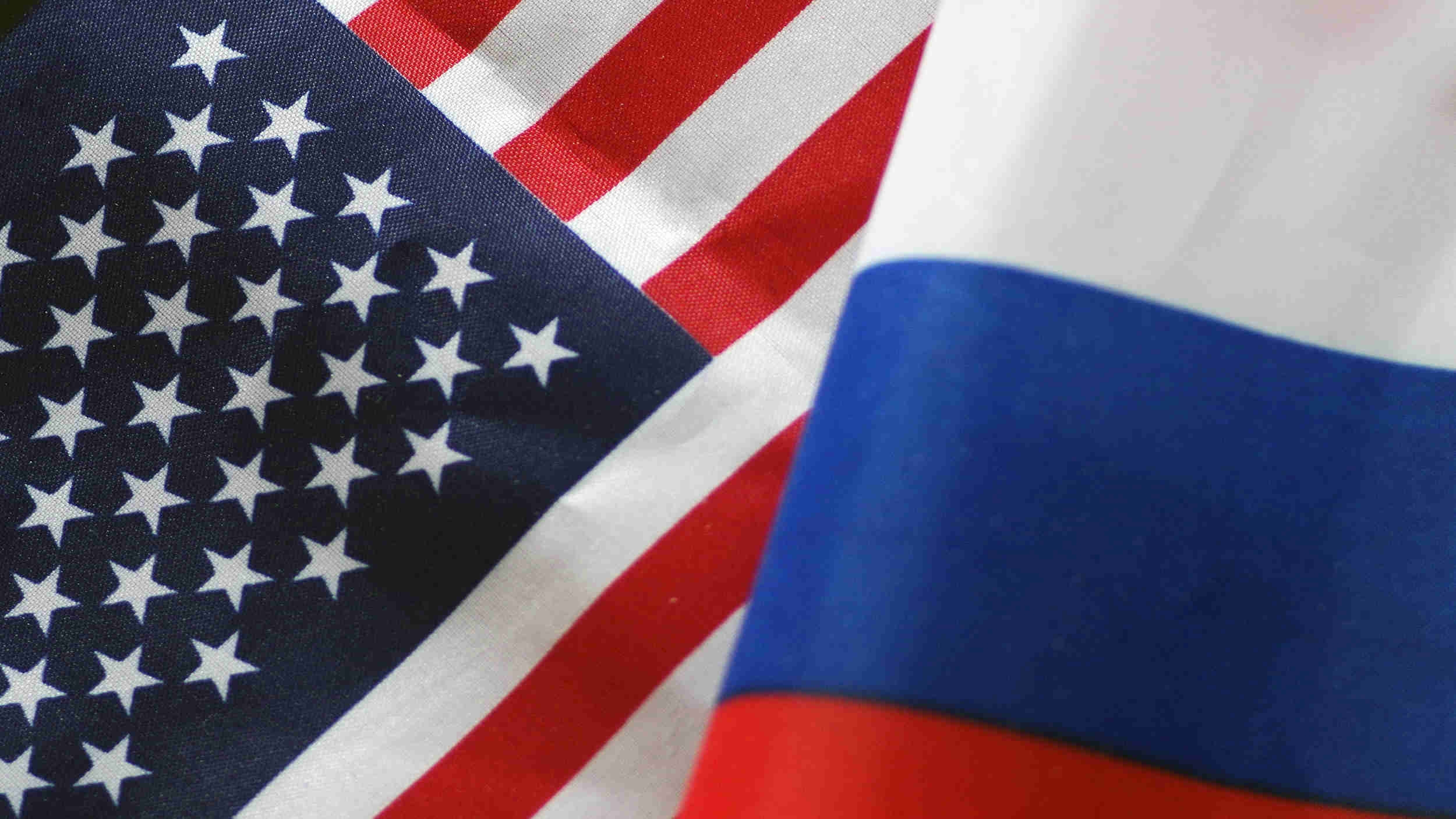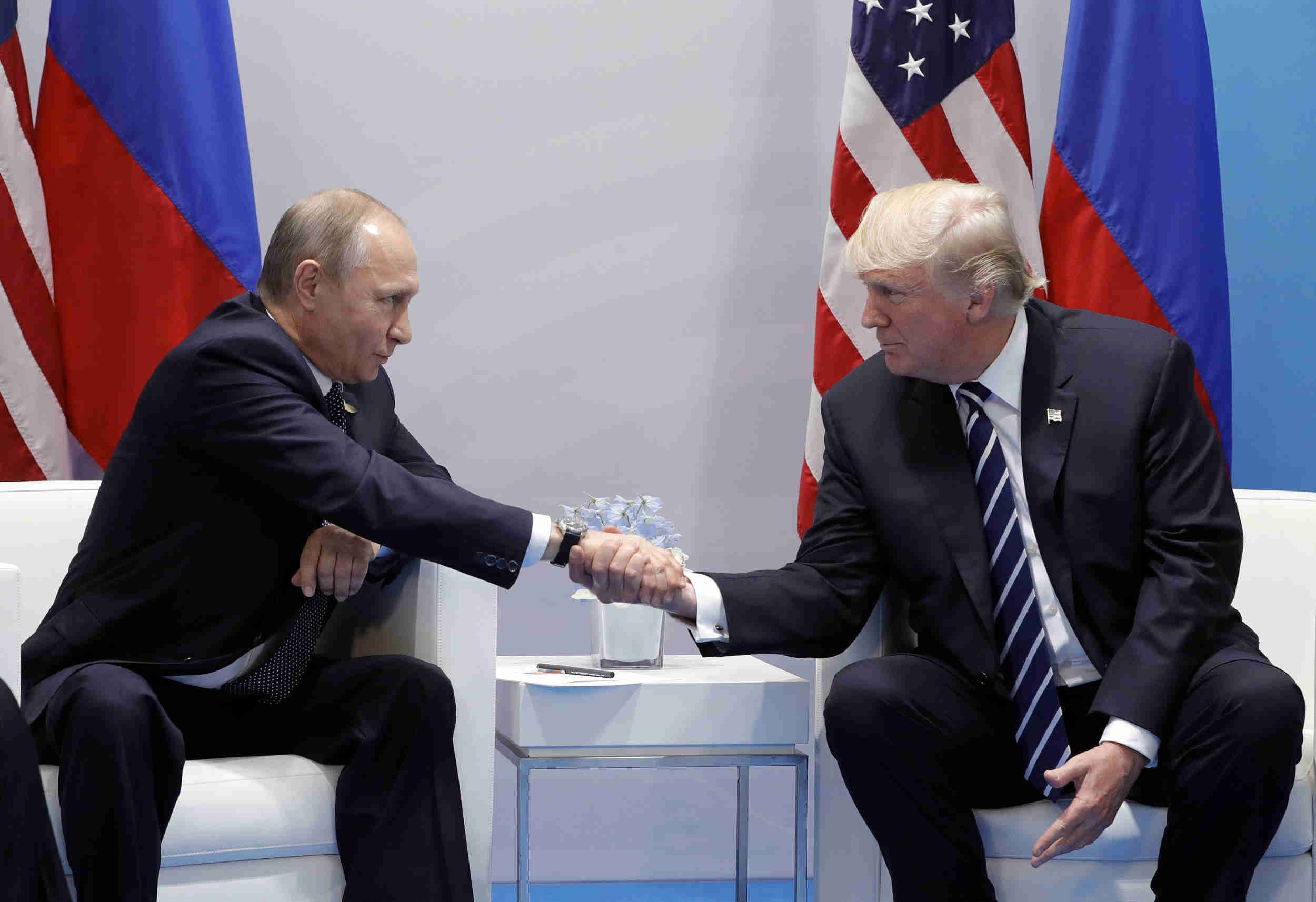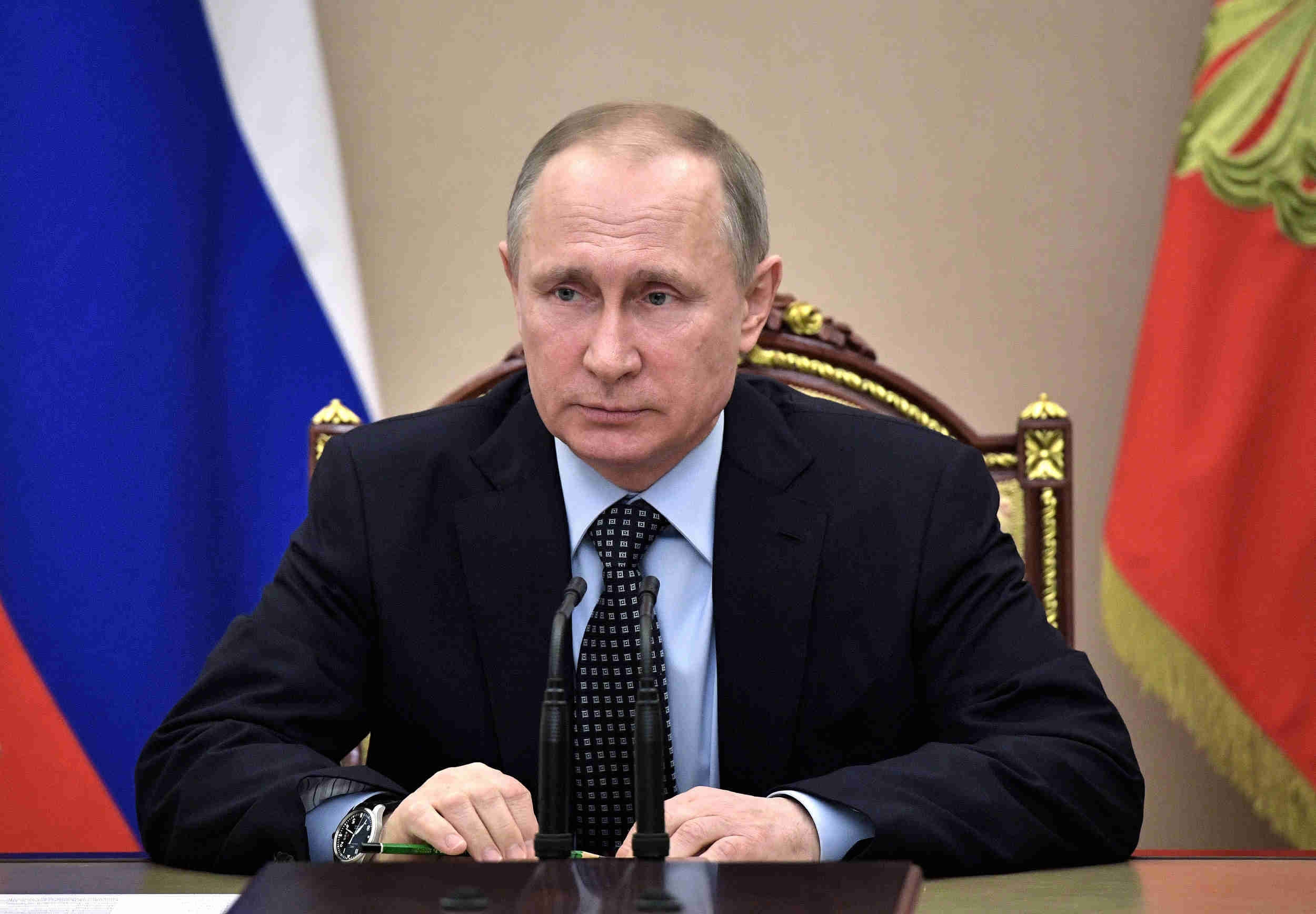
Politics
09:33, 18-Jul-2017
Russia ups pressure on US to give back control of diplomatic compounds

The Kremlin on Monday demanded that Washington unconditionally restore its access to diplomatic compounds in the United States, with a senior Russian official saying the row had "almost" been resolved following hours-long talks.
Russia is angry that Washington is still barring its diplomats from using two compounds in the states of New York and Maryland. In December, then-President Barack Obama ordered the ban in response to suspected Russian meddling in the US election.
"We consider it absolutely unacceptable to place conditions on the return of diplomatic property. We consider that it must be returned without any conditions and talking," Kremlin spokesman Dmitry Peskov told journalists.

Russian President Vladimir Putin and US President Donald Trump shake hands during a bilateral meeting on the sidelines of the G20 summit in Hamburg, Germany. /VCG Photo
Russian President Vladimir Putin and US President Donald Trump shake hands during a bilateral meeting on the sidelines of the G20 summit in Hamburg, Germany. /VCG Photo
When President Vladimir Putin and his US counterpart Donald Trump met for the first time at the G20 summit in Hamburg this month, the Kremlin strongman raised the question of the diplomatic sites "quite unambiguously," Peskov said.
"We still hope our American colleagues will show political wisdom and political will."
The row was high on the agenda at talks in Washington on Monday between Thomas Shannon, the US State Department's No. 3 in charge, and Russia's deputy foreign minister, Sergei Ryabkov. Those talks, which lasted three hours, had originally been scheduled for June, but Russia cancelled them at the time, citing new US sanctions linked to the conflict in Ukraine.
After the meeting, Ryabkov, asked by journalists if the issue of the diplomatic compounds had been resolved, replied: "Almost, almost." There was no word from the US side.
Obama announced the United States was shutting down the residential complexes in December at the same time as he expelled 35 Russian diplomats for alleged spying.

Russian President Vladimir Putin /VCG Photo
Russian President Vladimir Putin /VCG Photo
He said the measures were in response to US intelligence reports of Russian hacking and an alleged influence campaign to sway the US presidential election in Trump's favour, describing the compounds as used by Moscow for "intelligence-related purposes."
At the time, Putin held off from retaliating, saying he would wait to see how Trump reacted after he came into the White House. But hope that Trump would follow up on campaign pledges to boost relations has fizzled as any ties to Moscow have become toxic for the White House amid a maelstrom of US investigations into possible collusion between Russia and the Trump campaign.
Now Russia has ratcheted up threats that it could belatedly take revenge by blocking a country house and a storage facility used by the US Embassy in Moscow.
"If Washington decides not to solve this issue, we will have to take counter actions," Foreign Minister Sergei Lavrov said last week. Foreign Ministry spokeswoman Maria Zakharova complained last week that the US was also refusing to issue visas for Russian diplomats to replace those expelled.
(Source: AFP)
5798km

SITEMAP
Copyright © 2018 CGTN. Beijing ICP prepared NO.16065310-3
Copyright © 2018 CGTN. Beijing ICP prepared NO.16065310-3